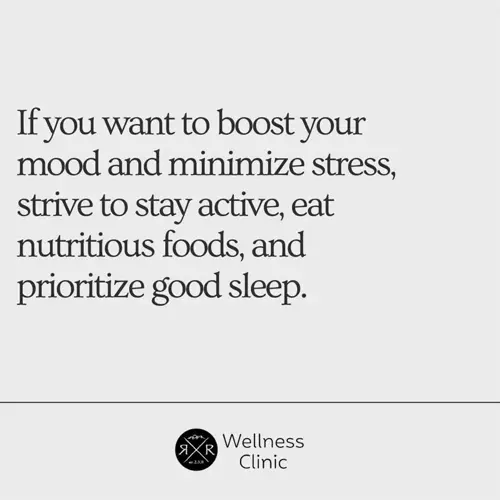10 Essential Self Care Routine Practices

Written by
Tran Quang
Reviewed by
Prof. Graham Pierce, Ph.D.Establishing a regular self-care routine can help avoid burnout and increase productivity in your daily life
Micro-practices of less than 5 minutes can be added into a busy schedule with ease
Self-care is personal so it should fit our individual needs
Hydration and nutrition are two non negotiable types of physical self care
Digital boundaries protect your mental energy and minimize anxiety triggers
Tracking progress also helps to create a small self-care journey into lifelong habits
Article Navigation
A strong self-care routine protects your physical, mental, and emotional health. It prevents burnout before fatigue sets in. Think of it as daily maintenance for your entire self. This process builds resilience against all the pressures of life. Everyone needs it as a foundation.
Your self-care routine must support your individual lifestyle. It adjusts to fit your parenting, work hours, or school. Do not practice strict routines. Focus on sustainable habits. We will discuss practical approaches to fit busy lifestyles. The suggestions listed are effective without added complexity.
Self Care for Busy Schedules
Forget about needing time. Your self-care practices thrive on mini-moments. Shove stress relief into little bits of time. Take a few minutes to practice deep breathing while the coffee is brewing. Or, when there are ads on TV, stretch. These tiny little blocks of time can be added up without disturbing hectic schedules.
Effective time management yields breathing space. Batch-cook dinners each Sunday to save you from making daily decisions. Use grocery delivery apps. Automate bills. These hacks free up mental space. I get back two hours each week from my meal prep. And I can use that time for self-care.
Distributing obligations communicates self-regard. It mitigates overwhelm. Delegate chores at home. Co-share obligations with colleagues on work projects. Delegating is not disempowering or lazy. It is self-care, your sustainability. Moving forward, you preserve energy for prioritization. Preserve your capacity with results-oriented responsiveness by dividing labor effectively.
Your everyday routine should incorporate flexible anchors. Allow for non-negotiable elements such as hydration breaks throughout your day. When possible, consider linking new habits to actions already present in your routine; for example, drink a glass of water before meals or perform desk stretches after sending emails. Small actions that you can consistently do can reinforce a sustainable self-care practice.
Nutrition's Role in Self Care
The food choices you make directly fuel your self-care routine. Balanced meals help regulate energy flow and sharpen focus. Every morning, I focus on protein and complex carbs. This simple healthy eating habit prevents that midday crash. You need quality fuel for your brain to function effectively in dealing with stress.
Hydration controls mood and mental clarity. Dehydration causes fatigue and irritability. Keep a water bottle visible all day. I aim to drink eight glasses of water before dinner. Add lemon or cucumber for flavor. This easy practice supports cognitive function throughout busy days.
Regular meal timing shows self-respect. It steadies blood sugar and energy levels. I eat every three to four hours. This rhythm helps defeat overeating or intermittent eating. Respect your body's need for reliable nourishment and promote routine stability in chaotic schedules.
Combine proteins, fibers, and wholesome fats: Balanced meals will last longer. Overnight oats with nuts and berries are my food prep. It keeps me full for hours. Smart nutrition prevents energy dips so self-care can take effect.
10 Essential Self Care Routine Practices
A robust self-care routine needs practical anchors. Start with practical exercises, such as 30-minute daily walks, to boost your sense of well-being and reduce stress hormones. Track your movement with an uncomplicated step counter. The real "bang for the buck" is 150 minutes a week.
Make sure to practice good sleep hygiene to improve your mental health. Keep your room at a temperature of approximately 65°F and maintain a dark environment. Avoid using screens for at least one hour before going to bed. I use blackout curtains and a white noise machine. This leads to improvements in your emotional control and cognitive functioning on a day-to-day basis.
Establish digital boundaries to safeguard energy. Designate meal times and bedtime as screen-free. Turn off non-urgent notifications. I take back focus by turning my phone off after 7 PM. This simple habit keeps anxiety down dramatically and improves the quality of my sleep.
In your self-care routine, your hydration goals matter. Women need 92 oz a day, men need 124 oz. Use a marked water bottle for accountability. Use any of the variations of fruit in water as flavors if plain water seems difficult for you. Good hydration keeps a clear mind.
Sleep Hygiene
- Definition: Creating optimal conditions for quality sleep
- Implementation: Maintain consistent bedtime, keep bedroom dark and cool at 65°F (18°C), avoid screens 1 hour before bed
- Benefit: Supports cognitive function and emotional regulation
- Target: 7-9 hours nightly for adults
Hydration Strategy
- Definition: Maintaining adequate fluid intake throughout the day
- Implementation: Use marked water bottle, add fruit infusions for flavor, drink before meals
- Benefit: Improves energy levels and cognitive performance
- Target: 92 ounces (2.7 liters) women / 124 ounces (3.7 liters) men
Mindful Movement
- Definition: Physical activity focused on body awareness
- Implementation: 30-minute daily walks, yoga, or dancing; focus on bodily sensations
- Benefit: Reduces stress hormones and boosts mood
- Target: 150 minutes moderate activity weekly
Digital Boundaries
- Definition: Intentional limits on technology use
- Implementation: Screen-free meals and bedtime, disable non-urgent notifications
- Benefit: Enhances focus and reduces anxiety
- Target: At least 1 hour daily without devices
Gratitude Journaling
- Definition: Regular recording of positive experiences
- Implementation: List 3 daily gratitudes in morning or evening
- Benefit: Cultivates positive mindset and reduces stress
- Target: Daily practice for 21 days to form habit
Social Connection
- Definition: Quality time with supportive relationships
- Implementation: Weekly face-to-face interactions, active listening
- Benefit: Strengthens emotional resilience and belonging
- Target: Minimum 2 meaningful connections weekly
Creative Expression
- Definition: Engaging in artistic or hands-on activities
- Implementation: Drawing, music, cooking new recipes weekly
- Benefit: Lowers cortisol and provides accomplishment
- Target: 1-2 sessions weekly minimum
Nutrition Balance
- Definition: Consuming varied, whole foods
- Implementation: Protein-rich breakfasts, colorful produce, mindful eating
- Benefit: Sustains energy and supports immune function
- Target: 5+ vegetable/fruit servings daily
Mindfulness Breaks
- Definition: Short mental reset periods
- Implementation: 5-minute deep breathing sessions, guided apps
- Benefit: Calms nervous system and improves focus
- Target: 2-3 daily pauses during transitions
Physical Check-ins
- Definition: Proactive health monitoring
- Implementation: Annual exams, symptom tracking, medication management
- Benefit: Prevents issues through early detection
- Target: Regular healthcare visits as recommended
Creating Your Self Care Plan
Start your self-care routine with the truth about yourself. Journal for a week, tracking energy highs and lows. Please take note of what drains your energy and what refuels it. I journal morning and night. This will reveal your unique needs before any plan is entered into.
Set flexible goals through the SMART model. Specific and Measurable. For example, 'meditate 5 minutes after waking', not 'meditate more', set gear goals that align with your travel and busy work or home schedules. Your daily routine must change with life's changes.
Integrate new time management practices. Attach new habits to old habits. During your coffee brewing, do breathing exercises. Schedule your self-care like a doctor's critical appointments. I block daily fifteen minutes on my calendar. Protect this time savagely.
Appraise and adjust once a month. What worked during a calm period may not hold up under stress. I adapt my self-care practice every quarter. This way, it stays relevant as you have parenting challenges or work deadlines. Adapting makes self-care practice sustainable over the long haul.
Self-Assessment
- Process: Identify current stressors and energy drains across life areas
- Tools: Journal prompts tracking daily energy highs/lows for one week
- Focus: Physical, emotional, social, and mental wellbeing domains
- Outcome: Clear priority areas needing self-care attention
Goal Setting
- Framework: Use SMART criteria (Specific, Measurable, Achievable, Relevant, Time-bound)
- Example: 'Drink 24 ounces of water before lunch daily' instead of 'hydrate more'
- Balance: Mix immediate wins (5-min stretches) with long-term habits (weekly meal prep)
- Target: 2-3 starter goals across different self-care categories
Activity Selection
- Personalization: Choose practices aligning with interests and values
- Options: From 10 Essential Practices list - select 2-3 most feasible starters
- Integration: Link activities to existing routines (e.g., gratitude during coffee)
- Variety: Ensure coverage of physical, mental, and emotional needs
Scheduling
- Time Blocking: Dedicate calendar slots like medical appointments
- Triggers: Pair with existing habits ('after brushing teeth, do 5-min meditation')
- Flexibility: Design alternate micro-versions for busy days (2-min breathing)
- Protection: Communicate boundaries to protect self-care time
Progress Tracking
- Methods: Journal entries, habit-tracking apps, or simple checklists
- Metrics: Energy levels, stress reduction, sleep quality improvements
- Review: Weekly reflection on what's working/needs adjustment
- Celebration: Acknowledge small wins to reinforce motivation
Adaptation
- Reassessment: Quarterly review of changing needs and priorities
- Troubleshooting: Modify goals during high-stress periods (travel/illness)
- Evolution: Gradually introduce new practices as habits solidify
- Support: Identify accountability partners for consistency
5 Common Myths
Self-care gets a bad rap as selfish because it is concerned with fulfilling personal needs over obligations to others
When you take care of yourself physically and mentally and are engaged in proper self-care you are less likely to burn out and you have greater capacity to effectively help others. You can thus provide better help to family, friends, and coworkers without being drained or burned out or feeling resentment that your efforts diminish with the passing of time.
Effective self-care requires expensive spa treatments or luxury wellness retreats to deliver benefits
Authentic self-care relies on simple, accessible practices integrated into daily life. Not expensive indulgences. Even things available for free like mindful breathing, walking in nature, or drinking enough water from your reusable bottle bring great benefits without financial expense. Wellbeing is therefore affordable for all, regardless of financial circumstance.
There is one perfect self-care routine that works perfectly for everyone.
Effective self care must be personalized since people have different needs based on their lifestyle, their energy and their responsibilities. A sustainable regime is built according to individual circumstances, whether its a parent, student, or worker, and changes as they change, so flexibility is more important than rigid formulas to achieve success in the long run.
Self-care is not required, but optional for the maintenance of good health and well-being.
Regular self-care is preventive health care that decreases chronic stress that causes diseases such as hypertension and anxiety disorders. Neglect of basic needs such as food, sleep, and emotional processing damages conditions of immune function and cognition and makes self-care a prerequisite for continued health.
Self care requires too much time for busy schedules
Micro-practices executed in one to five minutes, such as desk stretches and gratitude journaling, provide meaningful benefits in busy schedules. Integrating micro-practices into current routines (i.e. breathing exercises while commuting) shows that length of time is less important than consistency for sustainable self care.
Conclusion
Your self-care routine must be uniquely yours. It must not be copied from other people. Because what works for your friend may drain you. This personalization makes it non-negotiable that there be genuine well-being. I discovered this after years of relying on generic advice that left me feeling tired.
Start small by integrating one or two practices, such as tracking hydration or practicing 5-minute breathing exercises. These small habits build momentum without overwhelming you. I started with morning stretching. Small but consistent actions often outperform perfect but unsustainable efforts in creating lasting change.
Strive for consistency, not perfection. A few missed days won't ruin your progress. Just pick up from where you left off the next day. Your daily routine should bend, not break, while you are traveling or stressed. This flexible approach will build real resilience in you, rather than rigid expectations that are inevitably doomed to failure.
Your dedication to self-care creates unbreakable strength. It shifts how you respond to the pressures of life. Take one uncomplicated action step today. Your future self will appreciate the firm foundation of wellbeing and resilience that this provides for a lifetime.
External Sources
Frequently Asked Questions
What constitutes a complete self care routine?
A holistic self care routine covers physical, mental, and emotional wellbeing through practices like sleep hygiene, mindful movement, nutrition balance, digital boundaries, and emotional processing. Consistency across these areas prevents burnout while building sustainable resilience.
How can busy individuals maintain self care?
Incorporate micro-practices under 5 minutes like breathing exercises or gratitude journaling during transitions. Schedule self care like critical appointments and use habit stacking techniques.
- Pair activities with existing routines (meditate after brushing teeth)
- Prepare healthy snacks during weekend meal prep
- Set phone reminders for hydration breaks
Why does self care feel challenging to start?
Common barriers include misconceptions about time requirements or guilt about prioritizing oneself. Begin with one manageable practice like hydration tracking, and recognize self care as necessary maintenance.
What are foundational physical self care practices?
Prioritize sleep consistency, balanced nutrition with protein and vegetables, and daily movement. These regulate energy, support immunity, and reduce inflammation.
- Sleep: 7-9 hours in cool, dark environment
- Nutrition: Colorful produce and adequate protein
- Movement: 150 minutes weekly activity minimum
How does self care improve mental health?
Consistent routines lower cortisol, increase neuroplasticity, and build emotional resilience. Practices like digital detoxes and mindfulness create space for cognitive recovery.
Can self care be affordable?
Yes, prioritize no-cost practices like nature walks, breathing techniques, and hydration. Luxury treatments aren't essential.
- Free meditation apps
- Home workout videos
- DIY herbal teas
- Journaling with notebook
How to personalize a self care plan?
Conduct a self-assessment identifying energy drains, then select 2-3 practices aligning with your values. Track progress weekly and adjust based on changing needs.
What role does hydration play in self care?
Proper hydration maintains cognitive function, regulates body temperature, and supports detoxification. Use marked bottles and flavor infusions to meet daily targets.
How to overcome self care guilt?
Reframe self care as necessary maintenance enabling better care for others. Start with small, justifiable practices like 5-minute stretches.
What are signs of effective self care?
Notice improved sleep quality, sustained energy, reduced reactivity to stress, and increased focus. Track these metrics to validate your routine's impact.

